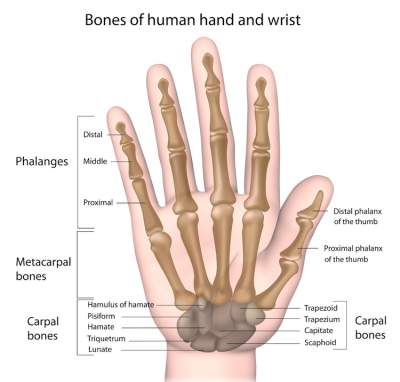Hand Surgery in Austria
Search and Compare the Best Clinics and Doctors at the Lowest Prices for Hand Surgery in Austria

Find the best clinics for Hand Surgery in Austria
No clinics available
Tunisia offers the best prices Worldwide
Price: $ 964

Leech Private Clinic, located in Hugo Wolf Gasse, Graz, Austria offers patients Hand Surgery procedures among its total of 47 available procedures, across 11 different specialties. Currently, there's no pricing information for Hand Surgery procedures at Leech Private Clinic, as all prices are available on request only. All procedures and treatments are undertaken by just a small team of specialists, with 2 in total at the Clinic, and they are accredited by ISO 9001:2008
- Home
- Austria
WHY US?
At Medijump, we're making medical easy. You can search, compare, discuss, and book your medical all in one place. We open the door to the best medical providers worldwide, saving you time and energy along the way, and it's all for FREE, no hidden fees, and no price markups guaranteed. So what are you waiting for?

Free

Best Price

Widest Selection

Risk-Free
What you need to know about Hand Surgery in Austria
What Does the Procedure Involve?
There are several different types of surgery that can be carried out on the hand, depending on the cause of the problem, such as injury, disease, or congenital defect. Some of the main types of hand surgery are tendon repair, nerve repairs, closed reduction and fixation, joint replacement (arthroplasty), as well as surgical drainage and/or debridement. Most of these surgeries are performed under general anesthetic, but some can be done under local anesthetic.
How Long Should I Stay in Austria for a Hand Surgery Procedure?
Depending on which type of surgery you underwent, you may need to stay in the hospital overnight. The recommended length of stay is 7 to 10 days at Austria, but you should check with your surgeon when you can fly home. During your stay, your surgeon may schedule follow-up checkups where your condition is monitored and your stitches are removed.
What's the Recovery Time for Hand Surgery Procedures in Austria?
In general, you should be able to return to work within a week if your job does not require extensive use of your hands, but if your job is physically demanding and you need to use your hands a lot, it can take as long as 3 to 6 months before you can resume your job. The total recovery period may take around 6 months, but this depends on which type of surgery you underwent.
What sort of Aftercare is Required for Hand Surgery Procedures in Austria?
After the surgery, you may need to attend a physical therapy program to strengthen your hand and bring back your range of motion using isometric exercises. Remember to begin your normal routine gradually and take it easy on your affected hand to prevent any complications. You may need to schedule an appointment with your local doctor to check your healing progress.
What's the Success Rate of Hand Surgery Procedures in Austria?
Hand surgery is effective and highly successful. However, just like most surgeries, it carries the risk of bleeding and infection. Other side effects and risks include incomplete healing, blood clots, and loss of feeling or movement of the fingers or hand.
Are there Alternatives to Hand Surgery Procedures in Austria?
Surgery is only an option if other forms of treatment are unsuccessful. If you do not want to undergo surgery, you can take non-steroidal anti-inflammatory medications or cortisone injections and attend physical therapy.
What Should You Expect Before and After the Procedure
Before surgery, your range of motion, mobility, and productivity may be limited. After hand surgery, you should be able to do normal things again and to perform your activities efficiently.
Whilst the information presented here has been accurately sourced and verified by a medical professional for its accuracy, it is still advised to consult with your doctor before pursuing a medical treatment at one of the listed medical providers
No Time?
Tell us what you're looking for and we'll reachout to the top clinics all at once
Enquire Now

Popular Procedures in Austria
Prices Start From $553

Prices Start From $218

Prices Start From $218

Prices Start From $2,050

Recommended Medical Centers in Austria for procedures similar to Hand Surgery

- Interpreter services
- Translation service
- Religious facilities
- Medical records transfer
- Medical travel insurance
- Health insurance coordination
- TV in the room
- Safe in the room
- Phone in the room
- Private rooms for patients available

- Interpreter services
- Translation service
- Religious facilities
- Medical records transfer
- Medical travel insurance
- Health insurance coordination
- TV in the room
- Safe in the room
- Phone in the room
- Private rooms for patients available

- Interpreter services
- Translation service
- Religious facilities
- Medical records transfer
- Medical travel insurance
- Health insurance coordination
- TV in the room
- Safe in the room
- Phone in the room
- Private rooms for patients available
Hand Surgery in and around Austria
Austria is a mountainous landlocked country in south-central Europe. Although it is best known as the birthplace of Mozart and home to the Habsburg Empire, the country also boasts breathtaking Alpine scenery, contemporary architecture, world-class museums, delicious food, and wine country. Austria is also known to have one of the best healthcare systems in the world, making it a popular destination for international medical tourists. Many people, particularly from other European countries and Asia, come to Austria to receive medical care in one of its many internationally acclaimed medical centers, two of which are accredited by JCI. These medical centers feature cutting-edge technology and first-class facilities.
Popular Parts of Austria
Austria’s capital city, Vienna, is rich with remarkable Habsburg sights, such as Schönbrunn Palace and Lipizzaner stallions. It is also home to the Mozart Museum, St. Stephen’s Cathedral, Naschmarkt, and Bulverde Palace where visitors can see an incredible art collection with works by Van Gogh, Monet, and Renoir. Salzburg is another popular city in the country. This city is frequented by fans of Mozart and the “Sound of Music.” It also boasts beautiful Baroque churches, a dramatic castle, and a stunning old town full of winding lanes. Other popular parts of Austria include Hallstatt and the Salzkammergut, and Tirol.
Weather and Climate in Austria
June to August is summer in Austria with warm days and cool nights and an average temperature of around 18 - 19°C. Summer mornings are usually sunny, but thunderstorms can sometimes break out in the afternoon. Winter in Austria, from November to March, can be very cold as the temperatures plummet to an average of -1 to 5°C. Spring and autumn are generally nice and incredibly beautiful.
Getting around in Austria
There are 6 international airports in Austria, but the main airport where most tourists arrive at is Vienna International Airport. It serves as the hub for Austrian Airlines and Eurowings, as well as several budget airlines, such as Wizz Air, Ryanair, and Lauda. This airport connects Austria with many cities in other European countries, North America, Africa, and Asia. Getting around Austria is fairly easy since it's public transport system is fast, efficient, and reaches even remote regions. Internal flights are available, but given the size of the country, it is rarely necessary. The country’s national railway system (ÖBB) is integrated with the Postbus services. Cheaper bust options, such as the Flexibus, are available as well. Inside major cities, an extensive system of light rail, metro, bus, and tramway services are available. Taxis are reliable and relatively affordable.
Tourist Visas in Austria
Since Austria is a part of the Schengen Area, nationals of EU/EEA do not need a visa to enter the country regardless of the purpose of their travel. Citizens of about 62 countries are exempt from a visa to travel to Austria, including the US, Canada, Australia, and South Korea. Unless you are a citizen of these 62 countries, you will need a visa to visit Austria.
Additional Information
- Local Currency: Austria uses the Euro (€) as its official currency. €1 converts to approximately US$1.17.
- Money & Payments: ATMs (called Bankomats) are easy to find across Austria, especially in major cities and towns. Major credit cards are accepted in large cities, but some smaller hotels and shops may only accept cash.
- Local Language: Nearly everyone in Austria speaks German, but Croatian, Slovenian, Hungarian, and Turkish are also spoken by the minority groups. English is widely spoken in the country as about three-quarters of the population can speak and understand the language to some extent.
- Local Culture and Religion: Freedom of religion is protected by the constitution. Around 64% of the population identifies as Roman Catholic. Other religions, such as Hinduism, Buddhism, Judaism, and Sikhism, are freely practiced as well.
- Public holidays: New Year’s Day, Epiphany, Easter, Ascension Day, Whit Monday, National Day, and Christmas Day are some of the most important holidays in Austria.
Popular Searches
- Plastic Surgery in Thailand
- Dental Implants in Thailand
- Hair Transplant in Thailand
- Breast Augmentation Thailand
- Gastric Sleeve in Thailand
- Gender Reassignment Surgery in Thailand
- Laser Hair Removal in Bangkok
- Botox in Bangkok
- Dermatology in Bangkok
- Breast Augmentation in Bangkok
- Coolsculpting in Bangkok
- Veneers in Turkey
- Hair Transplant in Turkey
- Rhinoplasty in Turkey
- Stem Cell Therapy in Mexico
- Rhinoplasty in Mexico
- Liposuction in Mexico
- Coolsculpting in Tijuana
- Rhinoplasty in Korea
- Scar Removal in Korea
- Gastric Sleeve in Turkey
- Bone Marrow Transplant in India
- Invisalign in Malaysia
- Plastic Surgery in the Dominican Republic
- Tummy Tuck in the Dominican Republic
- Plastic and Cosmetic Surgery in Poland
- Rhinoplasty in Poland
- Hair Implant in Poland
- Dental Implants in Poland
- IVF in Turkey

